The Growing Importance of HR in an Organization’s Success
By Kimberly Kafafian
As the saying goes, a company is only as good as its people. We’ll take that a bit further and say that your people are only as good as the effort, the investment, you put into them. And that is where we come in; as Human Resources professionals play an integral part in hiring, training, and retaining those people. We see first hand how those efforts and initiatives help to cultivate an engaged, productive workforce. And given the state of the current labor environment, HR’s role is growing in importance. In fact, according to LinkedIn’s latest Workplace Learning Report, 83% of global leaders feel the HR function is more critical now than it has ever been.
Why? Because creating an interested and agile workforce that will enable the organization to survive, and even thrive, during challenging times, hinges on making sure that all employees have the tools, skills, and career paths to succeed. And this falls under the umbrella of HR teams.
Career Pathing
Taking the steps to define a career trajectory for your workers can help prevent turnover. The HR team can work with leadership to identify the promotions, lateral moves, job rotations and professional development/training opportunities that will enable the employee to grow with the company. This initiative is well worth the investment. A previous LinkedIn study found that 94% of employees would stay with their company longer if it invested in their careers. Workplace systems structured by HR teams, such as employee education, performance assessment, and promotions, will aid in creating a framework for developing career paths.
Learning and Development
The best way to boost retention is to provide learning opportunities. 58% of employees say they are likely to leave their company without “professional development, continuing education, and career training to help develop new skills, stay up to date on current trends, and drive career advancement.” HR are integral in developing training initiatives that not only improve existing skill sets, but also offer opportunities to train in other areas to help further career development. Arranging for courses, workshops, lunch-and-learns, and other events that enable employees to stay on top of the latest trends and developments will show the workforce that you are invested in their careers.
Upskilling and Reskilling
61% of workers say upskilling is extremely or very important when weighing the decision to remain at their current job. But upskilling isn’t only important for retention, it also helps to minimize skills gaps in the workplace. HR’s involvement in upskilling is critical as they are responsible for:
- Setting goals
- Analyzing skill gaps across departments
- Understanding employee goals and motivations
- Determining who needs upskilling
- Designing learning programs for career paths
- Selecting appropriate learning technologies
- Cultivating a culture of learning
Demonstrating investment in the skills and career development of your workforce will go a long way in boosting engagement, reducing turnover, and attracting the right talent. With it being HR’s role to ensure that employees have the tools, skills, and opportunities to reach their full potential, these members are instrumental in an organization’s ultimate success.
 En Español
En Español








